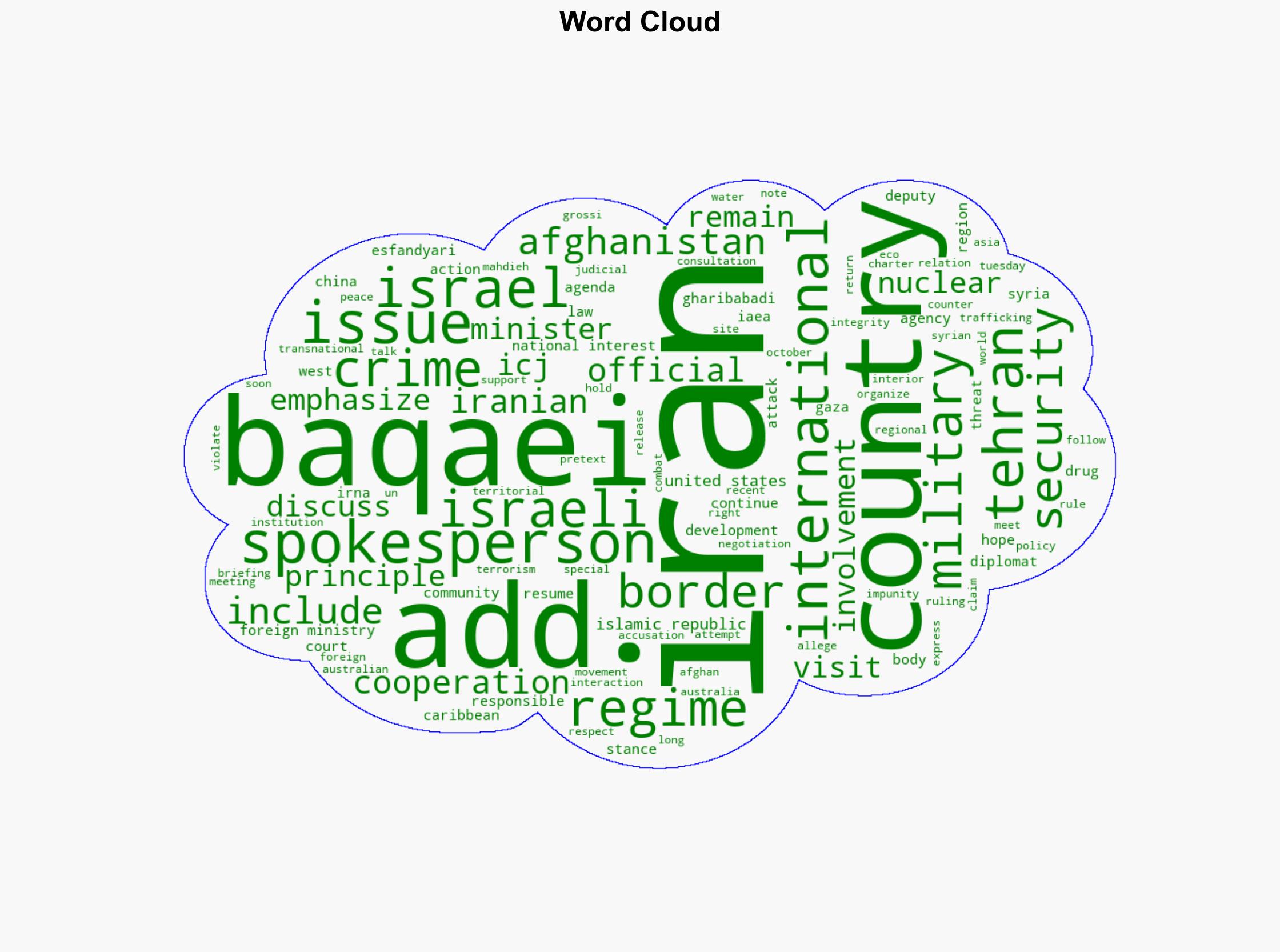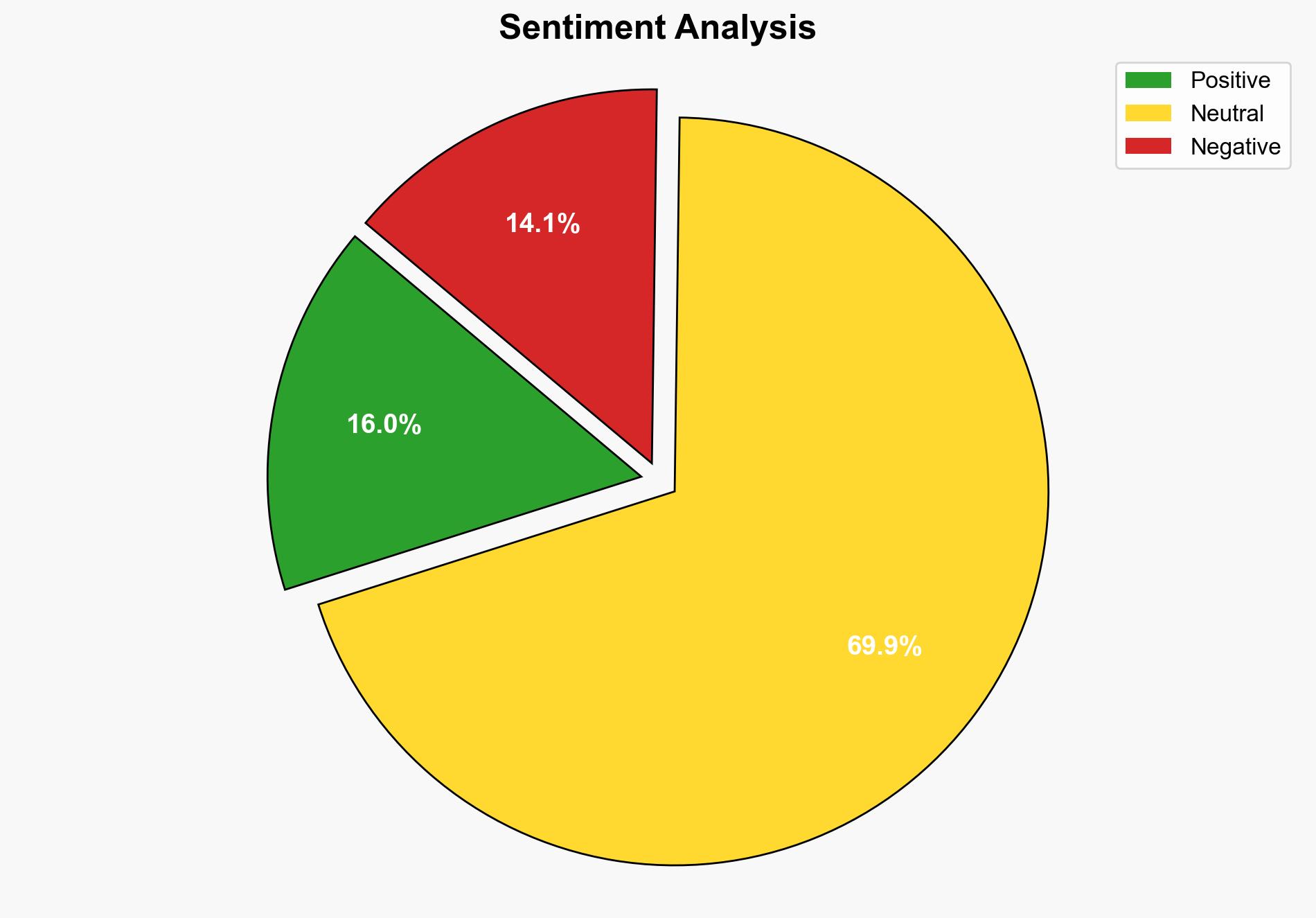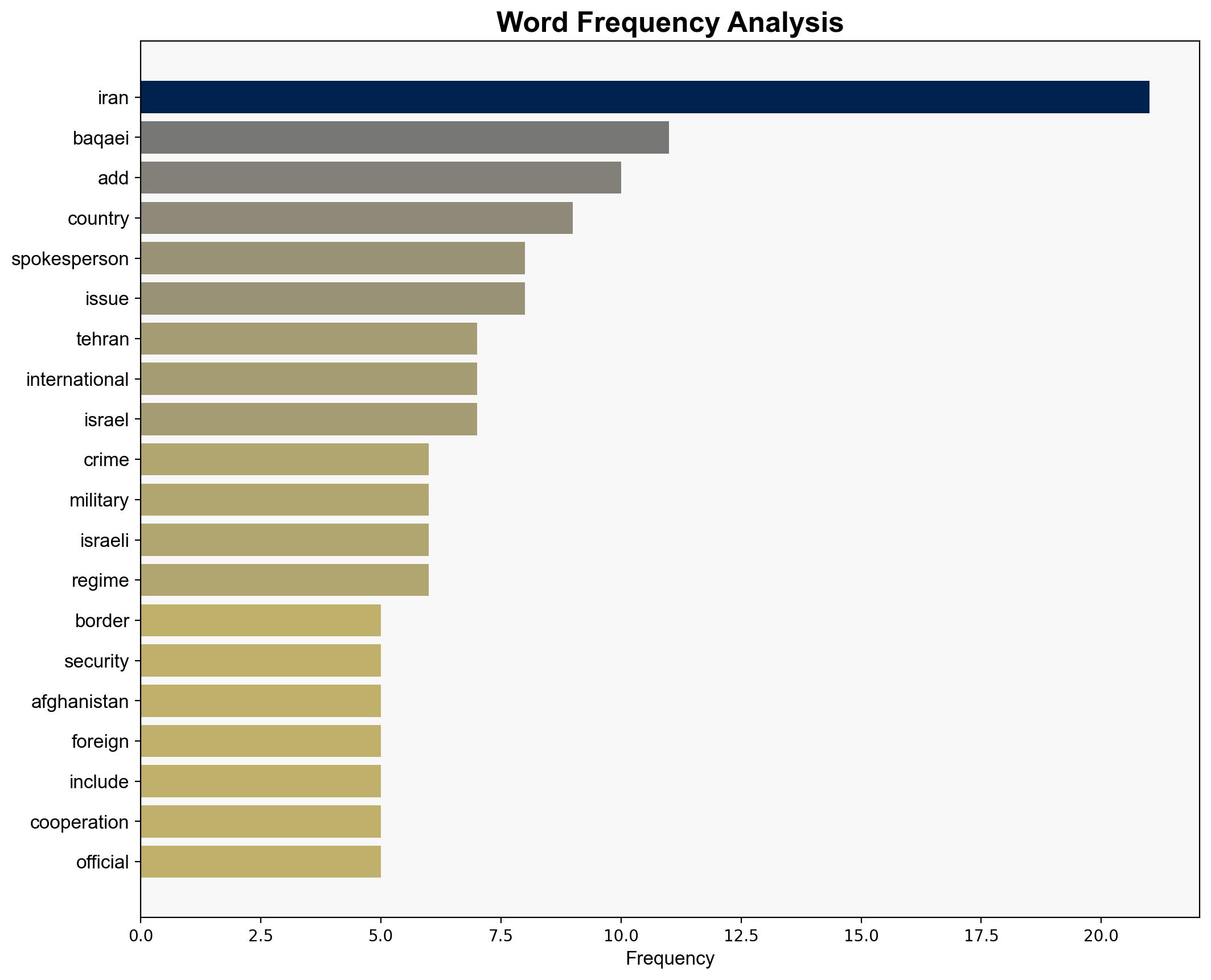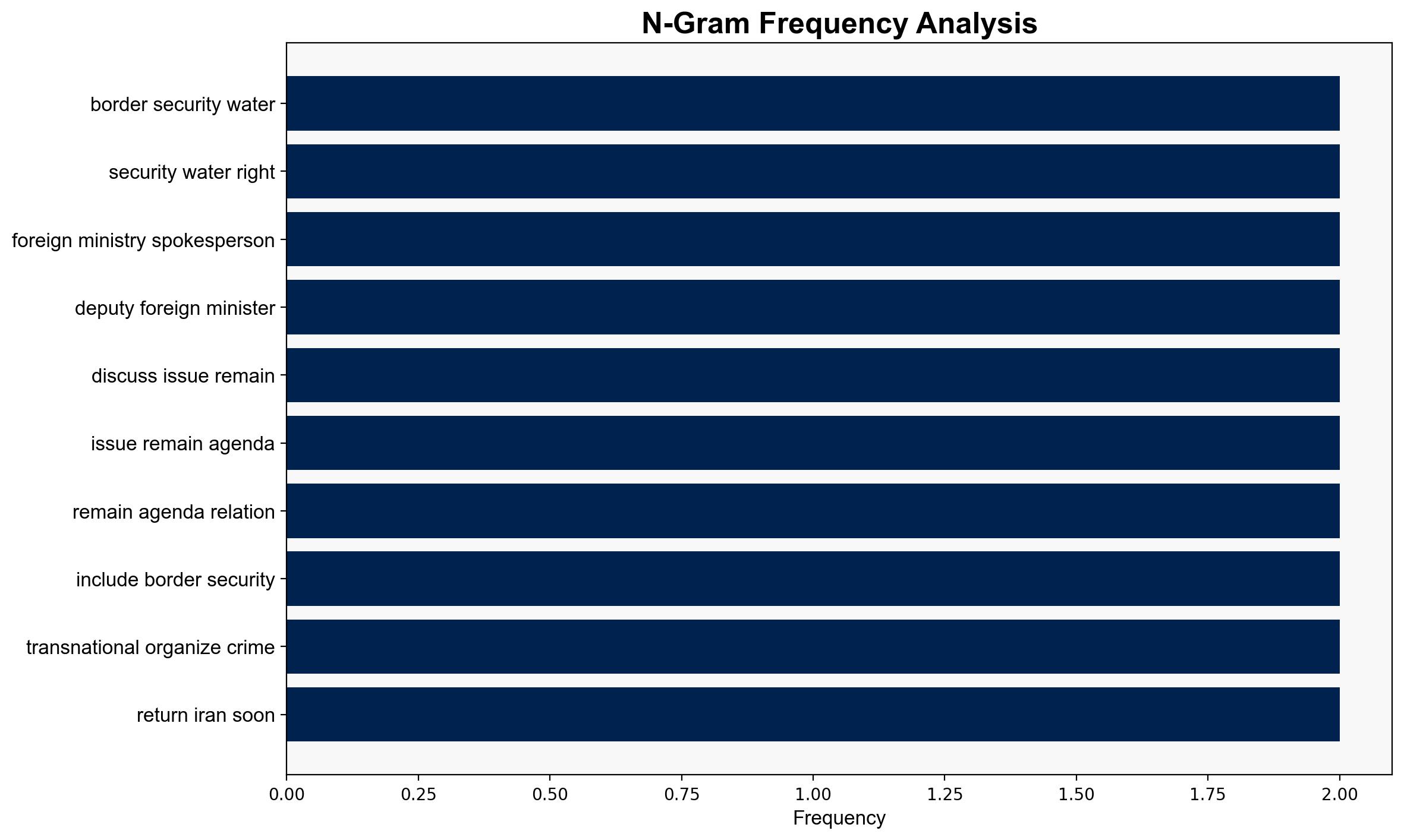Border security water rights on agenda of deputy FM’s visit to Afghanistan Spokesperson – Globalsecurity.org
Published on: 2025-10-29
Intelligence Report: Border security water rights on agenda of deputy FM’s visit to Afghanistan Spokesperson – Globalsecurity.org
1. BLUF (Bottom Line Up Front)
The most supported hypothesis is that Iran’s visit to Afghanistan primarily aims to address border security and water rights, with a secondary focus on enhancing regional cooperation against organized crime. Confidence level is moderate due to limited corroborative details. Recommended action is to monitor developments for shifts in regional alliances and potential impacts on transnational crime dynamics.
2. Competing Hypotheses
1. **Hypothesis A**: The primary objective of the deputy FM’s visit is to negotiate improved border security and water rights agreements, aiming to stabilize bilateral relations and address mutual concerns over transnational crime.
2. **Hypothesis B**: The visit serves as a strategic maneuver to strengthen Iran’s regional influence and counterbalance external pressures, using border security and water rights as diplomatic leverage.
Using ACH 2.0, Hypothesis A is better supported by the explicit mention of border security and water rights as key agenda items. Hypothesis B is less supported due to the lack of direct evidence linking the visit to broader geopolitical strategies.
3. Key Assumptions and Red Flags
– **Assumptions**: It is assumed that both Iran and Afghanistan have mutual interests in resolving border and water disputes. Another assumption is that these discussions are genuine and not a facade for other strategic objectives.
– **Red Flags**: The absence of detailed outcomes from the meetings raises questions about the depth of the discussions. The potential for misrepresentation of intentions by either party is a concern.
4. Implications and Strategic Risks
– **Implications**: Successful negotiations could lead to enhanced border security and reduced transnational crime, benefiting regional stability. However, failure could exacerbate tensions and lead to increased unauthorized movements and crime.
– **Strategic Risks**: Escalation of unresolved disputes could destabilize the region, impacting economic and security dynamics. There is also a risk of external actors exploiting any discord to further their own interests.
5. Recommendations and Outlook
- Monitor Iran-Afghanistan interactions for signs of genuine progress or strategic posturing.
- Engage with regional partners to support constructive dialogue and conflict resolution.
- Scenario Projections:
- Best Case: Successful agreements lead to improved security and cooperation.
- Worst Case: Talks fail, leading to increased tensions and regional instability.
- Most Likely: Incremental progress with ongoing negotiations required.
6. Key Individuals and Entities
– Kazem Gharibabadi
– Esmaeil Baqaei
– Rafael Grossi
– Mahdieh Esfandyari
7. Thematic Tags
national security threats, regional cooperation, transnational crime, diplomatic negotiations





